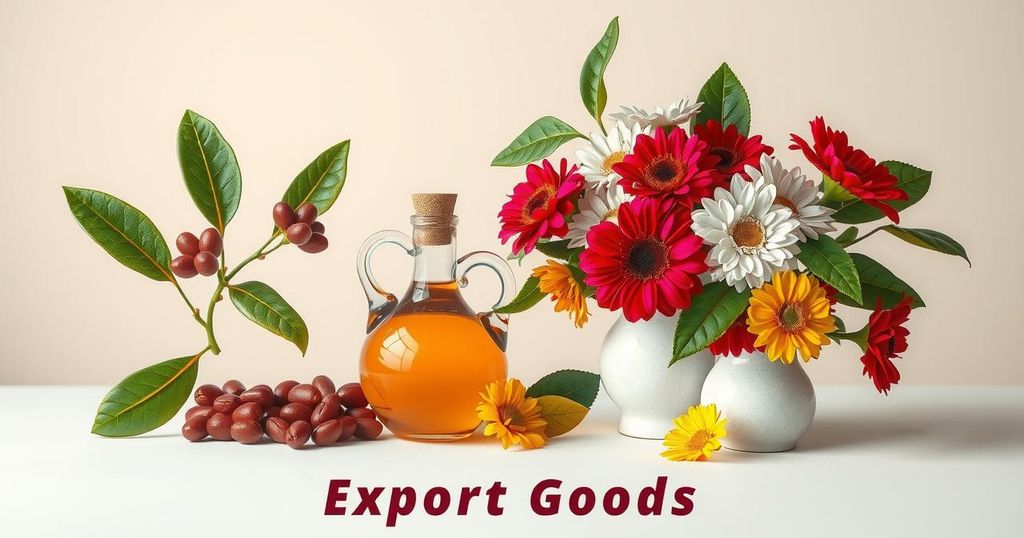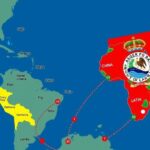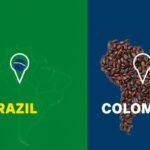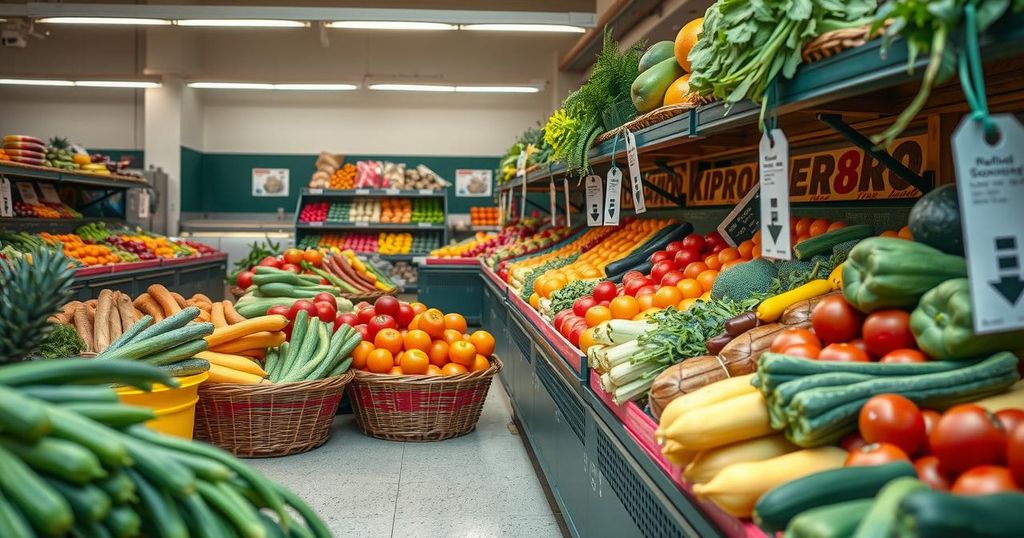Politics
ASIA, BRAZIL, BUREAU OF LABOR, COLOMBIA, COLUMBIA, CUBA, DONALD TRUMP, EXPORTS, GLOBAL ECONOMY, INFLATION, INTERNATIONAL TRADE, INVESTMENTS, MEXICO, NORTH AMERICA, OBSERVATORY OF ECONOMIC COMPLEXITY, OEC, OFFICE OF THE U. S. TRADE REPRESENTATIVE, PHILIPPINES, SOUTH AMERICA, TRUMP, U. S, U. S. DEPARTMENT OF AGRICULTURE, UNITED STATES
Clara Montgomery
Trump’s Tariffs on Colombian Goods and Their Impact on U.S. Consumers
President Trump has announced a 25% tariff on goods from Colombia, potentially increasing to 50%, due to diplomatic tensions. Major exports affected include petroleum, coffee, and cut flowers, which may drive up prices for U.S. consumers. These tariffs reflect broader immigration policies and economic negotiations between the two nations.
In a recent announcement, President Donald Trump indicated the immediate implementation of a broad 25% tariff on all goods imported from Colombia, which may rise to 50% within a week. This decision followed Colombia’s refusal to accept a U.S. military flight carrying deported migrants. Such tariffs, akin to a tax on imported goods, are typically absorbed by American consumers in the form of increased prices on everyday items.
Colombian exports to the United States are significant, totaling approximately $53.5 billion annually as of 2022, with the U.S. enjoying a $3.9 billion trade surplus. Notably, petroleum constitutes the largest export from Colombia, valued at $6 billion. Conversely, refined petroleum emerges as the leading U.S. export to Colombia, reflecting a mutually beneficial trade relationship.
Coffee, Colombia’s second-largest export, generated about $1.8 billion in 2022, representing roughly 20% of U.S. coffee imports and ranking just behind Brazil. Increasing tariffs on coffee could further strain American consumers already facing rising prices, which saw a 3.8% increase in 2024, surpassing the general inflation rate.
Additionally, cut flowers accounted for around $1.6 billion in exports from Colombia, making them the third-largest import. Other noteworthy products include gold and aluminum structures, which bolster the bilateral trade dynamics between the two nations.
The imposition of tariffs reflects broader tensions stemming from U.S. immigration policies. Countries such as Mexico and Brazil have voiced their discontent regarding U.S. plans for repatriating undocumented migrants. During his campaign, President Trump had emphasized tariffs as a means to generate government revenue and ensure compliance with U.S. directives.
In a statement posted on Truth Social, Trump asserted, “We will not allow the Colombian Government to violate its legal obligations regarding the acceptance and return of the Criminals they forced into the United States.” This underscores his administration’s intent to leverage tariffs as a policy tool.
In conclusion, the newly announced tariffs on Colombian goods could have significant repercussions for American consumers, particularly in the realms of coffee and cut flowers. The rising costs associated with these tariffs represent a complex intertwining of trade policies and immigration issues, which warrant close attention moving forward.
President Trump’s tariffs on Colombian goods are part of a larger strategy to enforce U.S. policies on immigration and trade. The decision emerged from diplomatic tensions following Colombia’s refusal to allow a return flight for deported migrants. The economic implications of these tariffs are vast, affecting consumer prices for staple items such as coffee and flowers, and potentially reshaping the trade balance between the two countries.
The implementation of tariffs on Colombian imports signals a significant shift in U.S. trade and immigration strategies. As consumers may face increased prices for essential goods, understanding the ramifications of such policies becomes essential. The interconnectedness of international trade and domestic regulations highlights the complexities of globalization that require ongoing scrutiny.
Original Source: www.cnbc.com








Post Comment